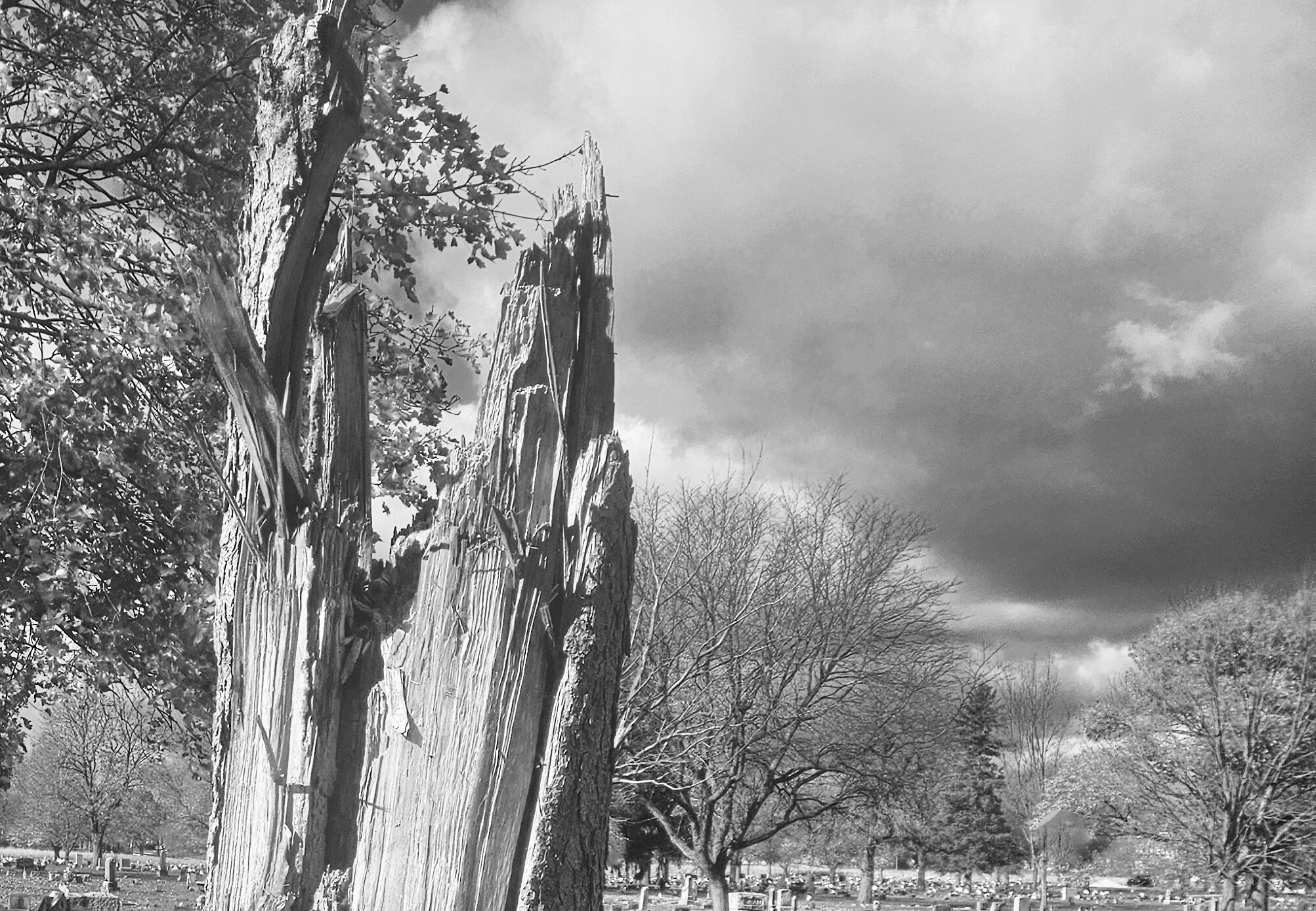I’m not a confident man. I doubt myself. Even as I write this, I wonder, “Are you sure you doubt yourself enough to write this?” I doubt my doubting. Doubts lead to a lack of confidence. The unknown world before me is one big chance for failure and rejection. I’m not blaming anyone for this. It’s not my parent’s fault. As far as I’m aware, I am the only one in my body. My doubts are mine and mine alone.

Major Adventure Movies don’t help me and my doubt cluster. I compare myself to naturally masculine men with well-written lines and perfectly timed explosions around them. These cool men make strong, confident decisions and have the correct amount of sweat on their foreheads. Some speak in that cool manly mumble, like Clint Eastwood did back when we could still hear him talk.
Powerful men don’t ask their wives what they think about blowing up buildings, nor do they get approval from supervision before sending squads of armed men into dangerous ambushes. Not these men. They don’t even tell their wives when they are coming home late. And for the most part, they look really good doing it. Confidence pours off them like syrup from a stack of pancakes.
I’m not one of those men. I remember when Rambo attacked three fully armed military helicopters with a bow and arrow and somehow only had a few scraps. He did lose the love of his life, or at least, it was the woman he’d known for the last few hours. Did he go to the ER to check on his cuts? No way. Did he consider speaking to a trauma therapist about his years in a Vietnamese prison camp? Not on your life. He lost the girl, whose name he couldn’t seem to remember. Did it rhyme with a fruit? Or was it a flower? It didn’t matter because he had more important, confident, manly things to do. He had men to kill, all of whom had broken the Geneva Convention at one point or another. In an act of unspeakable grief (most things in his life were unspoken), he ripped off this girl’s necklace and put it around his forehead. Then he brought vengeance on his enemies, never fearing, even for a moment, what this girl’s parents would think about leaving their daughter’s dead body on a rock in the direct sunlight.
I can’t do that. I have an inner doubt monster questioning me, “You really think that’s a good idea?” This doubt monster has been living between my liver and spleen since I discovered girls (the later part of 6th grade). I’ve tried to familiarize myself with this thing’s tactics, but he usually wins (I pull back and give up). I think I’ve won “the doubt battle” around the batting average of a utility infielder in Minor Leagues (.176 percent).
I was walking through my graveyard (my favorite low-impact exercise) earlier today. I was trying to enjoy the sun. I would have said, “Enjoyed the sun,” but honestly, I’m not sure I can fully enjoy it because of my “doubt governor” saying, “Should you really be enjoying the sun with all the suffering in the world? Think about that Nigerian tribe attacked by Al Shabab. Do you think they’re enjoying the sun right now?”
I breathed in the thawing snow and fresh mud into my lungs and remembered better days when Deb was alive, and I could kiss her anytime I wanted. I was soaking in the good from the world that surrounded me. The beautiful trees, the deep blue sky, and the semi-ordered gravestones. John Eldredge (Christianity’s favorite Wildman) wrote that beauty is “redemptive.” I believe this is true. Just stopping to pay attention to the nature in my cemetery is healing. It points to Jesus, our Creator, and implies that he is beautiful. It says that he loves me. It’s a gift.
While trying to find my redemptive sweet spot, I noticed a group of cars around my wife’s grave. In reality, it’s not her graveyard, it just feels like it. That and I tell everyone it’s her graveyard. I walked by these people, looking at them, perhaps longer than I should have. Sometimes, when you stare at people, they instinctively move out of your way. But these people didn’t. They just stayed there. My passive pouting was ineffective.
There must have been ten cars and maybe eighteen people standing around the grave site kitty-corner from Deb. Number-shaped shiny gold balloons spun gently in the wind. The number was 39. Then they noticed me noticing them. I stopped staring and looked just above their heads, pretending to be deep in thought. I even tapped my finger to my chin, trying to remember something important, something Mr. Bean would do if he were walking in Deb’s cemetery (although it’s not hers). At least, I think that’s what Mr. Bean would look like, I’m not sure.
There are unwritten rules of social etiquette in the commentary. First, you can’t stare. Well, you can stare, but you can do that as long as the people you are staring at don’t see you staring. And if they catch you staring, you will be forced into the uncomfortable Mr. Bean-like pose.
Second, you don’t go up to groups of strangers in a cemetery and try to initiate a conversation like, “Hey guys, nice day, eh?” or, “How bout them Lions?” And you can’t try to gather information like, “So who died?” Mourning is a closed, invitation-only event.
Now, you need to understand, there are different rules for non-mourning people you see walking the graveyard. If they are walking their dog, it’s OK to make eye contact with them (somewhere between 1 and 2 seconds) and offer a one-word greeting. But you need to keep walking. It’s not a high school reunion where you turn, face people directly, and ask them if they have any children in the criminal justice system. These are non-mourning people, so, as a rule, you don’t have to respect them as much. If one of their dogs bites you (as long as it doesn’t break the skin and they are your neighbors), ignore it and keep walking. Just make a mental note to not get near that stupid dog.
By the way, if someone doesn’t make eye contact, you’re free to grunt a “hi,” or make a sound that could be interpreted as “hi.” But if they purposely look away, you are not obligated to offer a salutation or even grunt in a friendly manner.
Staring is a powerful tool in the arsenal of social interaction. In general, staring is permissible only under three specific social interactions:
- You are in love
- You want to smash someone’s brains in
- They don’t see you staring at them
Third, when a group is mourning near your loved one’s grave, you can’t go there. It is under the “first come, first serve” social norm, believed to have been created long before the founding of America. It’s not holy ground; it’s mourning ground. Grief takes space between fifty feet and a quarter mile, depending on how upset the mourners are at the time. You can’t lament near other lamenters. I don’t know who made this rule, but we must respect it. So, since this “39” group was standing on top of my wife’s grave, I was forced to choose to either walk around the cemetery again or go home and sulk. I decide to do another lap.
Unfortunately, the “39” group grew between my first and second stare.
Grave Side Mourning Groups
The “39” group invading my privacy wasn’t the first group of grievers I’ve encountered in the graveyard. Mourning is a social event as long as you are invited. I’ve seen groups sharing stories, laughing, crying, and listening to music from a car with its doors open (at least, I think that’s what they were doing because I didn’t want to break the unwritten “no eavesdropping dropping rule”).
My doubt monster tapped me on the shoulder, “Why doesn’t your family do that? Why can’t you have family over at Deb’s grave and pretend like they like each other?” Of course, if I did try to do something like that, I imagine I’d hear everyone over age twenty mumbling, “Why didn’t we meet at a restaurant? It’s freezing out here. At least I could get a cup of coffee.” Typically, the only time my family stands around a graveyard is immediately following a funeral, and even then, it’s only for ten minutes. My family gatherings are functional, not social.
So, I got jealous. I wanted what they had. I wanted the family to surround me, laugh, drink soda, and share stories about Deb while being with me in the cold. I liked what looked like the sense of belonging I assumed these families were having.
One of the strongest cures for depression is social connection. Researchers have known this for decades. Enjoying friends is also the greatest antidote for anxiety. The highest demographic of people who commit suicide are middle-class Caucasian males between 35 and 55. That’s me (minus a few years). Why? Because we white people aren’t that social. We are busy with our lives (or on steaming devices), so we isolate.
We have no one to blame but ourselves for this.
Men
I try to get men together whenever I can. We guys fear rejection, so we isolate ourselves. It’s safer. The Church I attend is filled with good men, many of whom are isolated. They stay in their homes, work on projects, do their jobs, and watch their TVs. I love to bring these men together in community. I believe we need each other. We were never meant to be alone. God put me on a mission to push back on this “isolation narrative” and connect men together. This doesn’t have to be in graveyards; it just has to be together, preferably inside, with some coffee. I want to push back against the “isolation narrative” men have inadvertently held on to for so long.
Jealousy has the power to motivate people toward either defeat or activity. Either passivity or connection. So, I want to motivate men to get together. We need each other. And I don’t need any more alone time that I already have. I can’t have what the “39” group had because I don’t know what they had. But I can get men together to laugh, share stories, and enjoy one another. And then I won’t be so jealous. I’ll be full on the inside. And people who are complete on the inside are never jealous.
“So, in Christ we, though many, form one body, and each member belongs to all the others.”
Romans 12:5 (NIV)
* * *
“That is what mortals misunderstand. They say of some temporal suffering, “No future bliss can make up for it” not knowing that Heaven, once attained, will work backwards and turn even that agony into a glory.” ― C.S. Lewis, The Great Divorce
